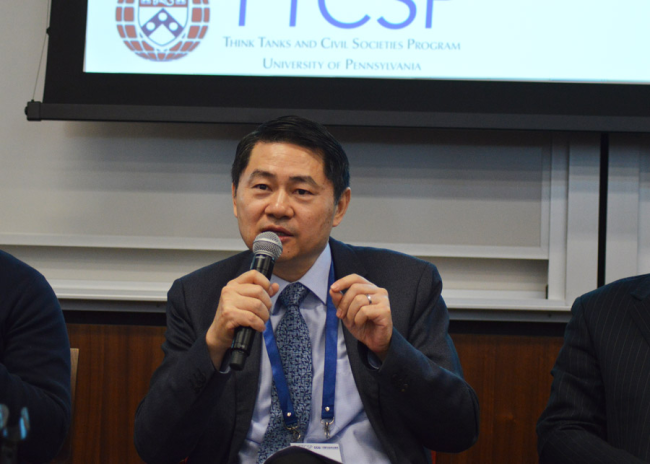Wang Huiyao: a scholar or a social entrepreneur?
Wang Huiyao is the founder of the Center for China and Globalization, an influential think tank in China. When we asked him if he prefers to call himself a scholar or a government advisor, Wang rejected both of these labels. Instead, he prefers the term "social entrepreneur". What does that mean? Wang Huiyao explains this and much more in our series "Deep Dive: Talks with Chinese Internationals".

Wang Huiyao, Founder and President of Center for China and Globalization (CCG) [File photo: provided to China Plus]
You can also find the shows on Apple Podcasts.
One of China's First “Sea Turtles" Comes Home
by Manling, host of China Plus
It is always the prepared who are able to take advantage of the opportunities life sends their way. Wang Huiyao, the founder and president of the independent think tank, the Center for China and Globalization (CCG), is just such a man.
Forced to go to the countryside to receive an education from the peasants and toil in the fields, he endured hardships that had once been beyond the imagination of his young self in the city. And yet he found the time and the opportunities to read and learn as much English as he could. In the 1960s and early 1970s in China, learning English would have seemed like a pointless pursuit to most people. After all, what use is a foreign language in the countryside?

Wang Huiyao, Founder and President of Center for China and Globalization (CCG), takes an interview from China Plus. [Photo: China Plus]
Wang was inspired to study as much as he could by his father, who was one of the few people at the time to have traveled outside China. He worked on the construction of the Tanzania-Zambia railway, and impressed upon his young son that English was so widely spoken elsewhere in the world that it might be useful to him some day.
He was also lucky to have an intellectual and exceptionally generous mother who considered knowledge more important than material comfort. He recalled a time when she went out of her way and spent one-fifth of her monthly salary to find a source of academic stimulation for him: an English-Chinese dictionary. This was an extraordinary luxury back then, as households were living on limited rations and the money coming in was never enough to cover the cost of decent meals for all the members of the household.
This little dictionary was Wang's most treasured possession while he lived in the countryside, and when he was at school. It made the dull rural life bearable, even though he had to drink hot water with pepper in it to keep warm during the bitterly cold winter. To this day, he has carefully kept this dictionary intact. It is a token of parental love and the positive influence it had on his life. But it would take more than just parental attention for Wang to achieve all that he has in his career.
